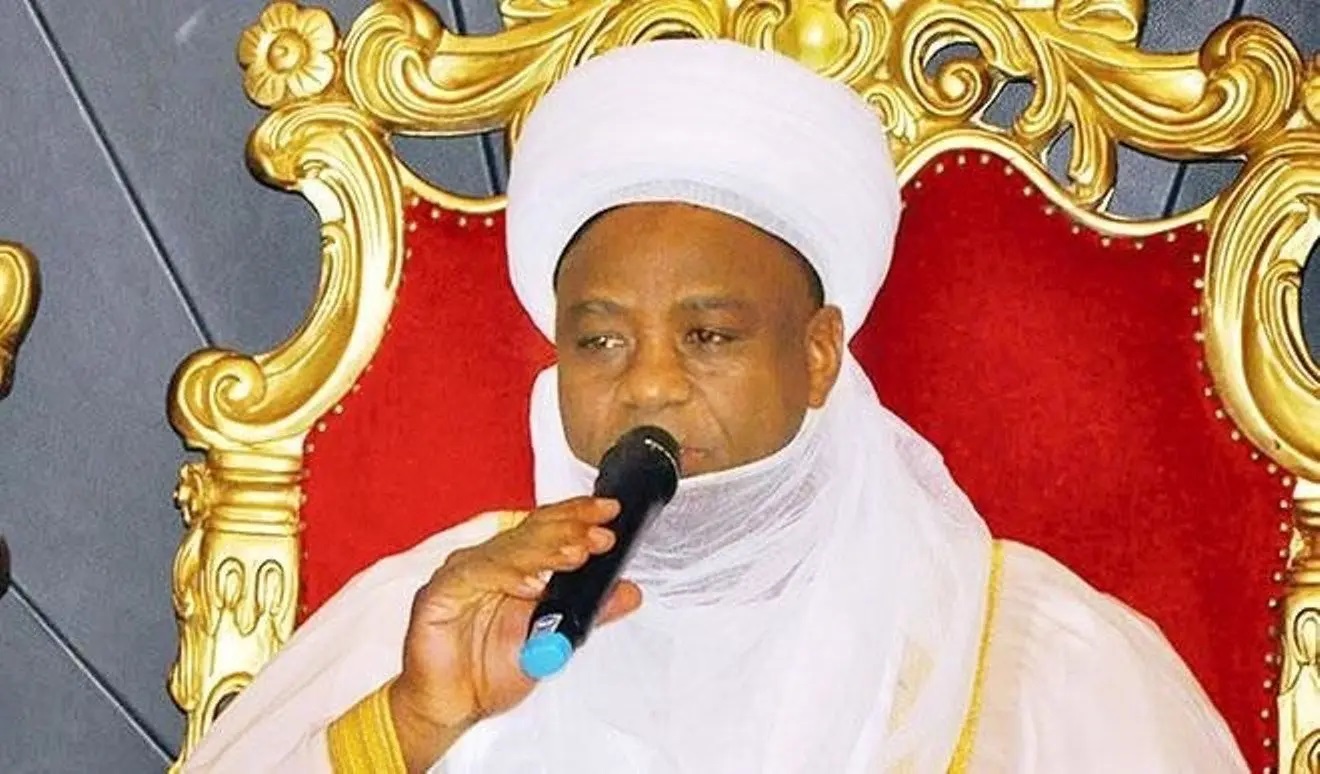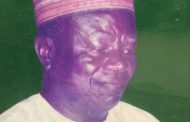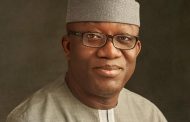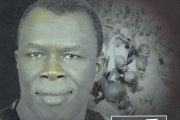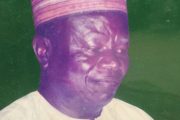Post-independence Nigeria has been so defined by inter-group acrimony as to have left individuals and groups with terrible enemy images of the other persons and groups. The dynamics of the protagonist/antagonist binary has seen nearly everyone securitizing everyone else, totalizing in power relationship mediated almost entirely by violent articulation of difference. In this process, only a few have been able to stay aloof or above raking and threatening fire and brimstone, at least in the newspapers.
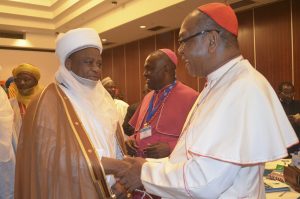 What is argued here is that Sultan Muhammadu Sa’ad Abubakar 111 is, especially in the current phase of inter-group verbal warfare, one of the few who has not joined in the violent articulation of difference. This is not to suggest the Sultan could be indifferent to the projection of interests of Muslims or whatever else he privileges. The inference is based rather on his consistent standpoint that whoever is implicated in killing or terrorism or banditry has committed a crime and the Nigerian State should be decisive in dealing with such according to the law; that criminality is the domain of the state to deal with and not something excused by the Fulani or whichever identity is involved. It is doubtful if anyone has heard him raising alarms about creeping Christianization in Nigeria. He also maintains appropriate protocols of never openly disagreeing or challenging his opposite number in Christendom in Nigeria. Sultan Sa’ad Abubakar 111 has actually advocated inter-religious marriage in 2016, that being one of the silent tension in Christian – Muslim relations in Nigeria. As things stand today, a Muslim man can easily marry a Christian woman but that is not the case when it involves a Christian man and a Muslim woman. The problem with that is not so much that there are hundreds of Christian men out there in search of Muslim men but the interpretation of that phenomenon as a Muslim strategy of Islamisation.
What is argued here is that Sultan Muhammadu Sa’ad Abubakar 111 is, especially in the current phase of inter-group verbal warfare, one of the few who has not joined in the violent articulation of difference. This is not to suggest the Sultan could be indifferent to the projection of interests of Muslims or whatever else he privileges. The inference is based rather on his consistent standpoint that whoever is implicated in killing or terrorism or banditry has committed a crime and the Nigerian State should be decisive in dealing with such according to the law; that criminality is the domain of the state to deal with and not something excused by the Fulani or whichever identity is involved. It is doubtful if anyone has heard him raising alarms about creeping Christianization in Nigeria. He also maintains appropriate protocols of never openly disagreeing or challenging his opposite number in Christendom in Nigeria. Sultan Sa’ad Abubakar 111 has actually advocated inter-religious marriage in 2016, that being one of the silent tension in Christian – Muslim relations in Nigeria. As things stand today, a Muslim man can easily marry a Christian woman but that is not the case when it involves a Christian man and a Muslim woman. The problem with that is not so much that there are hundreds of Christian men out there in search of Muslim men but the interpretation of that phenomenon as a Muslim strategy of Islamisation.
Bayero University Historian, the late Prof Dahiru Yahya had explained in a 1993 interview with the now rested TSM that this happens because Muslims do not think Christians in Nigeria have the same regard for their religion as to feel that a Christian man would protect a Muslim woman, the question is, how many people have his perspective of the phenomenon? And how many religious leaders have tried to educate the rest towards a course correction?
What the foregoing points at is, when taken at the level of pronouncements, the incumbent Sultan can be said to have remained above the fray. But, someone might ask why his pronouncements would be more important than what he does or why might we not focus more on what he does. In other words, why wouldn’t actions speak louder than voice in assessing the Sultan as a leader upon his turning 66?

Memories of the late Mallam Aminu Kano in the radicalisation of ethnicity
To answer such a question would take us temporarily to the metatheoretical criterion of truth which says that there is, indeed, something called the truth but that there are no objective criteria for determining that we have reached that thing called the truth. Every truth, as far as this argument goes, is relative. That means that what we call the truth in every circumstance is not as important as who produced it. When we turn attention to the producer of every truth, the closest we are left with in terms of determining the truth is the language used. That is why what the Sultan or anybody for that matter says rather than what he does is the most credible way of establishing the real worth of the person. It is the reason for the emphasis on the language rather than the actions of the Sultan in coming to the conclusion that he is not implicated in the violent articulation of difference that has characterized inter-group relations especially in recent times.
Now, saying so is not the same as grading him as a good or a bad leader since words such as good or bad are meaningless when used without reference to the dialogic engagement with the language. That is, it is the Sultan’s audience, not the Sultan himself, who determines the meaning of what the Sultan or anybody says. For instance, some people in the national audience of the Sultan could say his advocacy for inter-religious marriage is a Muslim ploy because Muslims are permitted to marry more than one wife. Another person or group in the same national audience could interpret the same advocacy as a strategy of unifying the country. There can be up to a hundred different interpretations of that same call for inter-religious marriage by the Sultan. That is not a problem as the truth would still come out as soon as one of the hundreds of interpretations becomes the consensus of the majority or their frame of reference for action.

Sir Ahmadu Bello of ‘Let’s understand our differences’ fame
Right now, we do not know the dominant sense of that particular advocacy in Nigeria as to say that the Sultan is a good or a bad leader but we can infer sensitivity to diversity and inclusiveness when we place that advocacy in the multicultural context of Nigeria. And further infer that the Sultan is closer to the first generation of northern leaders in the mould of Sir Ahmadu Bello and Mallam Aminu Kano in terms of diversity management than he is to the current generation of regional leaders. Where the current generation of intellectual and political leaders got their hyperactivity to any articulation of difference in the north is unclear except that theirs is radically opposed to the Sardauna’s constructivism in arguing for Nigerians to understand their differences, for example.
Mallam Aminu Kano went a little farther than the Sardauna. In fact, the late Prof Ahmadu Jalingo who served as Aminu Kano’s political Secretary would say that Mallam’s was the radicalization of ethnicity because the Northern Elements Progressive Union, (NEPU) was re-mobilisation of Parapo groups, Hope Rising Union formations and such other identity platforms, giving them a class orientation. Prof Nur Alkali would say the same thing, arguing how helpful all articulations of difference are actually invitation to leaders. As he was used to say, there are some in every society who must shout and there are those who must call all those shouting and ask for what has triggered them to shout. The position of that generation of established intellectuals in the north is contradicted by the tendency to frown at all cases of ‘shouting’ in the region today and the associated resorting to blaming the victims. Why this is the case beats imagination but perhaps a matter for another day.
What can be restated is that the Sultan never being implicated in shouting expletives and also for being closer to the sense of diversity/praxis of inclusivity of the Sardauna and Aminu Kanos of northern Nigeria sends a message in leadership which must be recognised as he clocks 66. His signals in leadership are important, given the Sultan’s diverse spaces of flow – from the military to diplomacy to the civil society to the traditional authority system. It means that he flows in and through key centres of power or has links to such as for him to act as a key voice of restraint and network for deliberate, consensual options when others are threatening fire and brimstone in a country without a centre of gravity such as Nigeria.
At a time when people 77 years old are winning presidential powers around the world or 95 years old are being recalled to power as happened a few years back in Malaysia, the incumbent Sultan is good news for Nigeria. It is not necessary for anyone to be president or prime minister to be a force for good in the age of diffusion of power.
Happy birthday to His Eminence!

